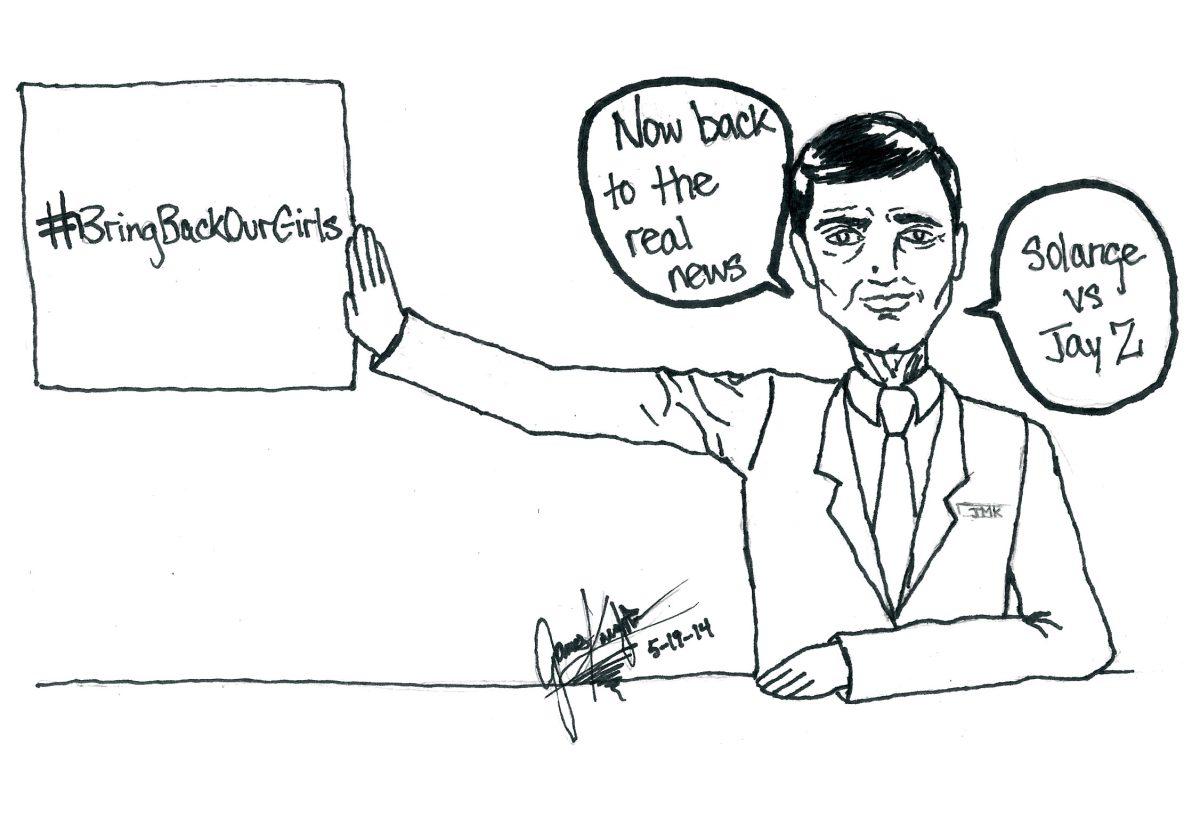More than 200 Nigerian schoolgirls were kidnapped April 14, and it has taken weeks for the tragic news to make headlines. It would seem the abduction has gained public attention primarily through the efforts of celebrities and the #BringBackOurGirls campaign, which generated one million tweets by May 7.
Needless to say, the support of public figures is essential, but why have media outlets hesitated to report this act of terrorism?
Even the most trusted media outlets, including The New York Times and CNN, devoted minimal attention to the issue. They seemed more concerned with the Donald Sterling’s racial rants, proving an ironic and discriminatory bias toward what these outlets deem newsworthy.
This leads to the conclusion that black people who are not entertainers, athletes or high-profile politicians are insignificant to many mainstream outlets. We have seen the upheaval that is caused when just one white girl goes missing, so the chaos that would ensue for the safety of hundreds is unimaginable.
The Nigerian government reported that Boko Haram, an Islamic terrorist group, abducted the young girls from their boarding school in Chibok and subsequently drove them into the forest, where nearly 30 abductees escaped. The remaining girls haven’t been heard from since the attack, and the media’s silence about their predicament is uncomfortably loud.
With regards to foreign affairs, the United States has fixated on Russia’s occupation of Crimea with proposals to invade Russia. However, there has been no national call requiring that the U.S. government intervene in Nigeria, which evidently is in desperate need of help negotiating the safe return of the girls.
The Nigerian newspaper Daily Trust stated that on April 10 the majority of the schoolgirls in captivity had been transported to neighboring countries Chad and Cameroon after being married off to sect members for a price equivalent to $12.43. Now is not the time for the U.S. to be cautious of its involvement in foreign affairs. More than ever, there is a need for the mass surveillance technology the U.S. government loves to make use of domestically, to aid in the search for those girls in Nigeria, Chad and Cameroon.
The media outlets should be putting pressure on the government to pursue action and involvement in Nigeria, instead of underreporting and showing a reluctance to raise awareness. There is an increasing need for media coverage of these kidnappings which emphasizes that while certain crimes dominate international headlines, others receive very little attention. Undoubtedly this media bias makes it difficult to trust what is reported in the news. It is an unfortunate truth that if the mass abduction occurred on any continent but Africa, there would certainly be a lot more pressure to report on the case and prompt international action.
This incident goes to show the real power of social media. The #BringBackOurGirls campaign finally seems to have the world watching, or at least aware. Hundreds of thousands of people, including First Lady Michelle Obama, have posted photos of themselves holding pieces of paper reading “#BringBackOurGirls” to Facebook, Twitter and Instagram. Obviously, it is naive to believe that hashtags will result in social change. However, the campaign can lead to more people speaking up and placing real pressure on the government to take action, which could yield great results. Social media has become the most shareable worldwide collection of voices the world has ever seen—one that is increasingly difficult to ignore.
It has successfully done what the news outlets have not and put the missing girls in the spotlight. Now that the story is gaining the attention it deserves, it is time for the government of Nigeria and supporting nations to play their roles and help get those girls home.
Send your thoughts to Sophie at technician-viewpoint@ncsu.edu.











